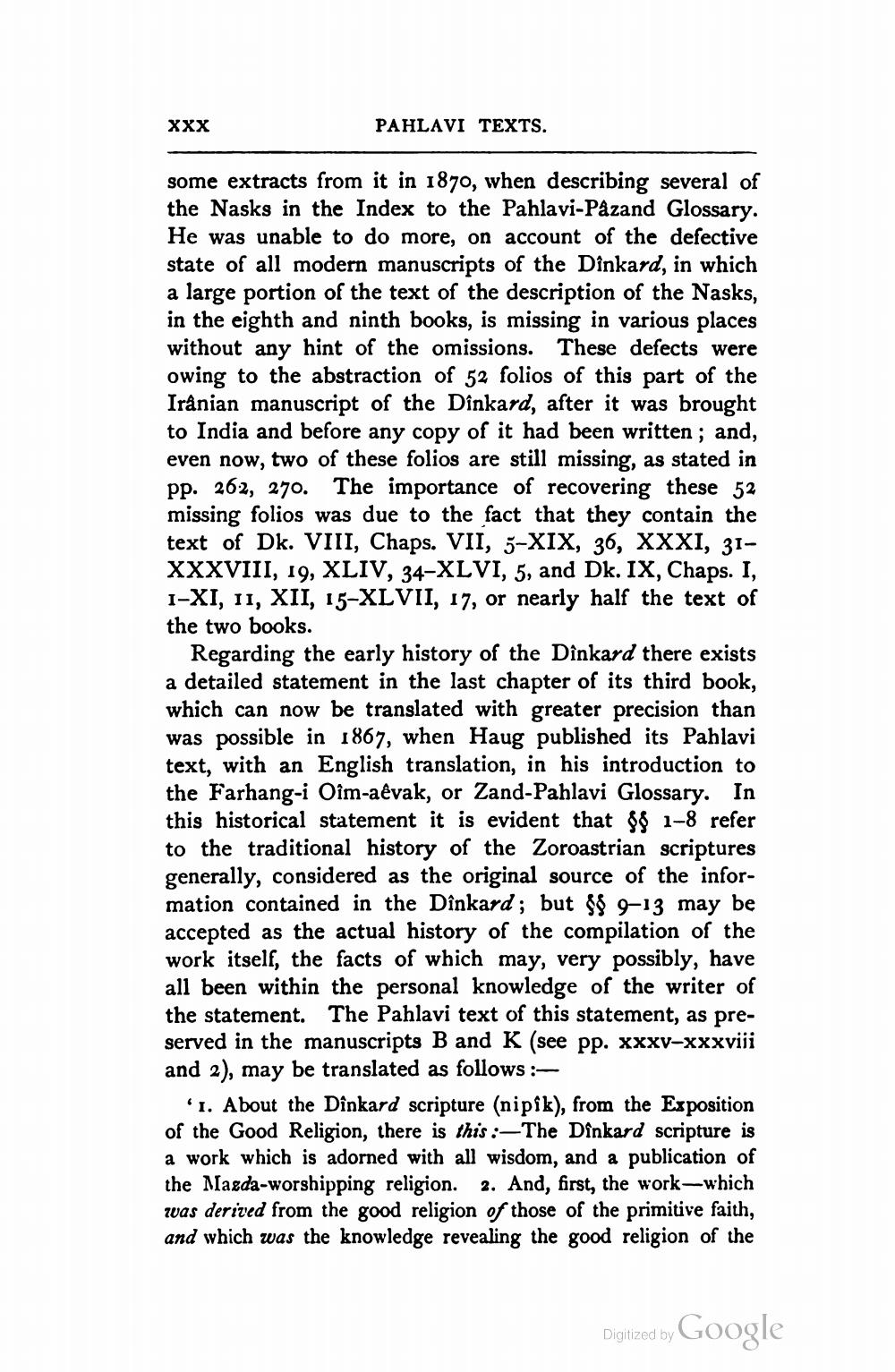________________
XXX
PAHLAVI TEXTS.
some extracts from it in 1870, when describing several of the Nasks in the Index to the Pahlavi-Pazand Glossary. He was unable to do more, on account of the defective state of all modern manuscripts of the Dinkard, in which a large portion of the text of the description of the Nasks, in the eighth and ninth books, is missing in various places without any hint of the omissions. These defects were owing to the abstraction of 52 folios of this part of the Iranian manuscript of the Dinkard, after it was brought to India and before any copy of it had been written; and, even now, two of these folios are still missing, as stated in pp. 262, 270. The importance of recovering these 52 missing folios was due to the fact that they contain the text of Dk. VIII, Chaps. VII, 5-XIX, 36, XXXI, 31XXXVIII, 19, XLIV, 34-XLVI, 5, and Dk. IX, Chaps. I, 1-XI, 11, XII, 15-XLVII, 17, or nearly half the text of the two books.
Regarding the early history of the Dinkard there exists a detailed statement in the last chapter of its third book, which can now be translated with greater precision than was possible in 1867, when Haug published its Pahlavi text, with an English translation, in his introduction to the Farhang-i Oîm-aêvak, or Zand-Pahlavi Glossary. In this historical statement it is evident that $8 1-8 refer to the traditional history of the Zoroastrian scriptures generally, considered as the original source of the information contained in the Dînkard; but $9–13 may be accepted as the actual history of the compilation of the work itself, the facts of which may, very possibly, have all been within the personal knowledge of the writer of the statement. The Pahlavi text of this statement, as preserved in the manuscripts B and K (see pp. xxxv-xxxviii and 2), may be translated as follows:
'1. About the Dînkard scripture (nipik), from the Exposition of the Good Religion, there is this :—The Dinkard scripture is a work which is adorned with all wisdom, and a publication of the Magda-worshipping religion. 2. And, first, the work-which was derived from the good religion of those of the primitive faith, and which was the knowledge revealing the good religion of the
Digitized by Google




